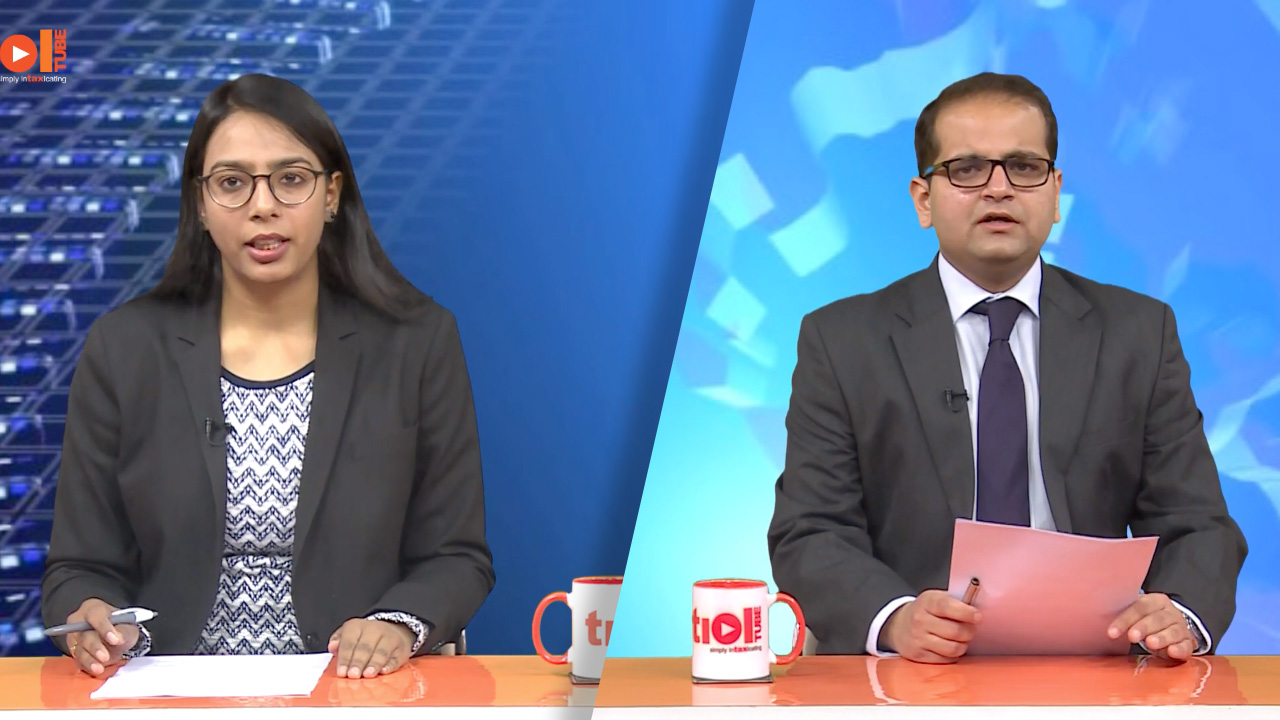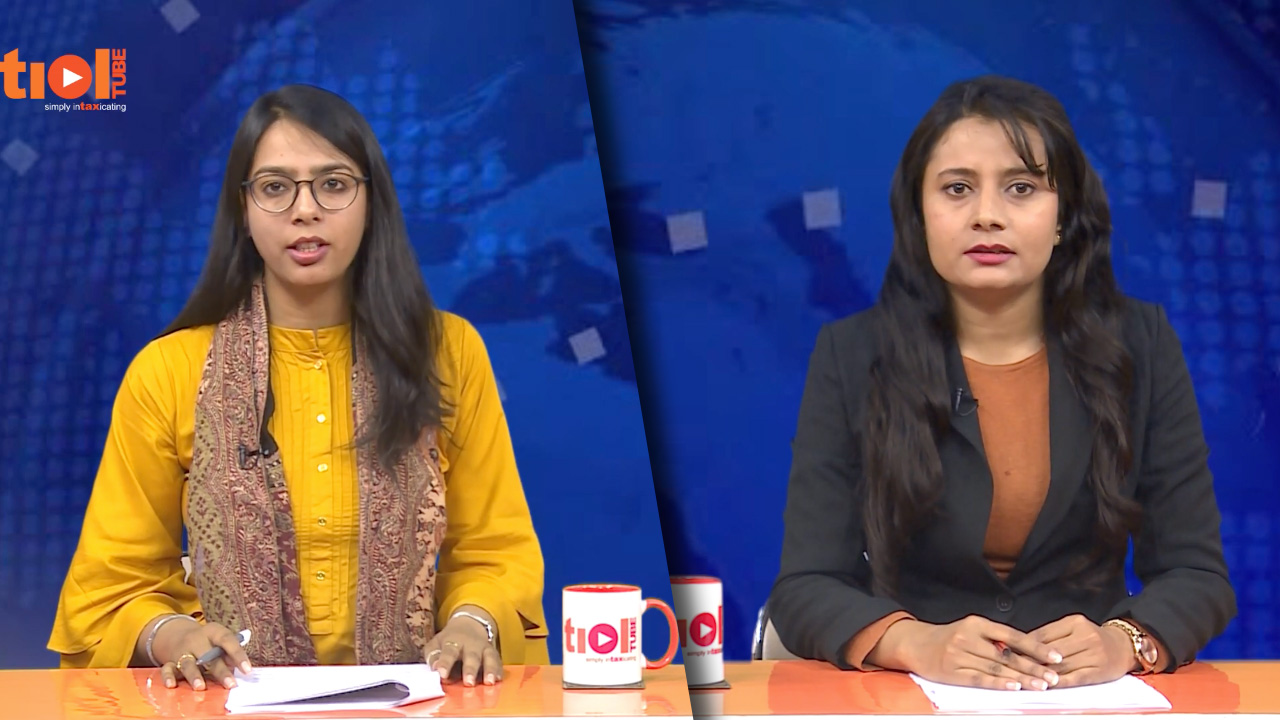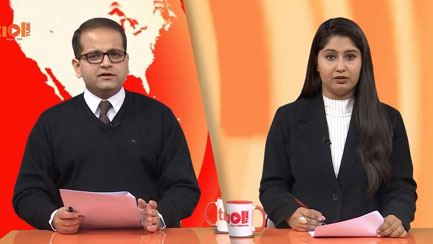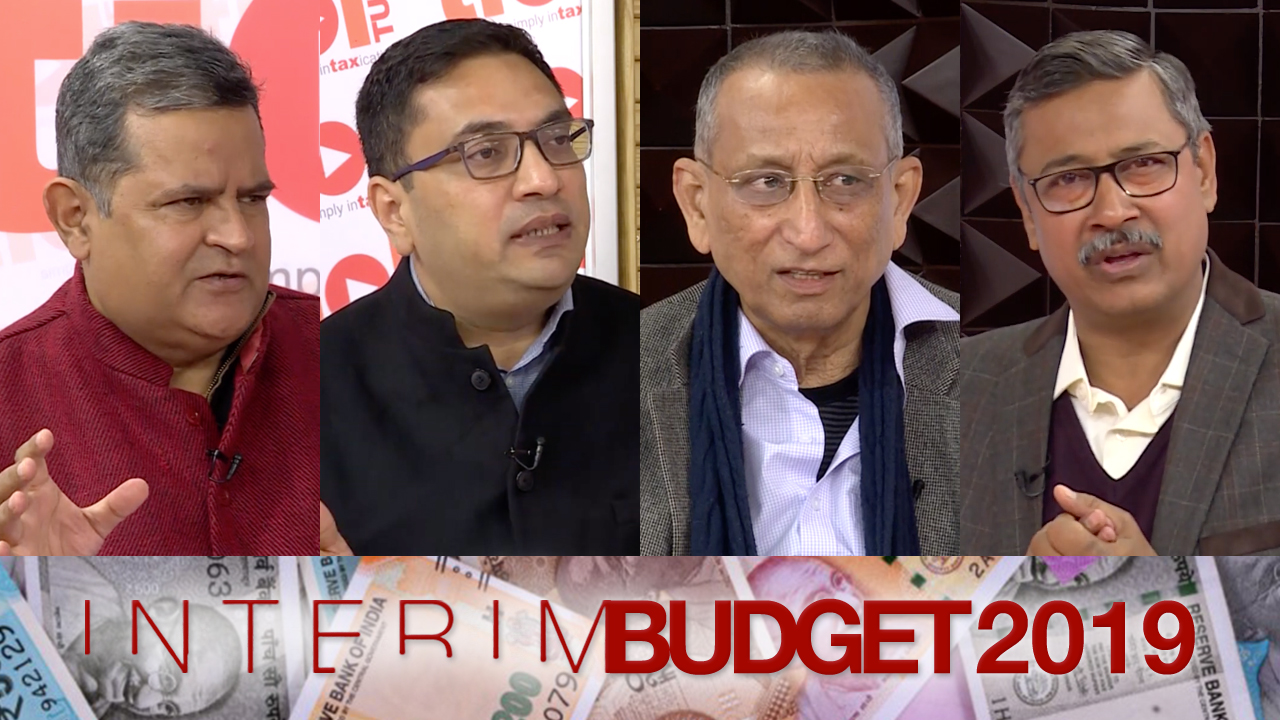|
SERVICE TAX
2019-TIOL-626-CESTAT-MUM
S K Shah Vs CCE & ST
ST - Appellant had during the period 01.04.2007 to 31.03.2012 rendered various taxable services to M/s Maharashtra State Electricity Distribution Company Ltd. - alleging that the appellant had not paid appropriate tax, demand notice was issued for recovery of the same along with interest and penalty - demand confirmed by original authority, therefore, appeal in CESTAT.
Held: By virtue of notification 45/2010-ST dated 20.07.2010, transmission and distribution of electricity for the period up to February 2010/June 2010 has been retrospectively held to be not leviable to tax in exercise of powers conferred by s.11C of the CEA, 1944 r/w s.83 of FA, 1994 - subsequently, transmission of electricity has been held exempted by notification 11/2010-ST dated 27.02.2010 and distribution of electricity by notification 32/2010-ST dated 22.06.2010 - These notifications have been interpreted by Tribunal in case of Kedar Constructions - 2014-TIOL-2138-CESTAT-MUM - impugned order is, therefore, set aside and appeal is allowed with consequential relief: CESTAT [para 5, 6]
- Appeal allowed: MUMBAI CESTAT
2019-TIOL-625-CESTAT-KOL
Haldia Petrochemical Ltd Vs CST
ST - Assessee had entered into agreement with different foreign companies having no office in India - These pertain to various contracts for setting up of Petrochemical Refinery at Haldia, West Bengal - In terms of the these agreements, the assessee received various services - The department was of the opinion that such services are classifiable under category of 'Consulting Engineering Services' - In proceedings before lower adjudicating authority, demand for service tax has been raised for period 2002-2003 to 2006-2007 in respect of certain services received by assessee from service providers situated abroad - Subsequently, FA, 1994 was amended and Section 66A was inserted w.e.f. 18.04.2006 making specific provision in Act itself for payment of service tax on Reverse Charge Mechanism - The Bombay High Court and subsequently Supreme Court in case of Indian National Shipowners Association have categorically held that service tax is liable to be paid on services received from abroad only after the date of enactment of Section 66A - These views have also been circulated by CBEC vide their Circular dated 26.09.2011 - The liability for payment of service tax on services received from abroad will arise only from 18.04.2006 - Consequently, demand for period prior to said date is set aside - The demand for reversal of Cenvat Credit amounting to Rs.3,18,977/- has been upheld by adjudicating authority - Such payment of service tax has been ordered on cenvat credit availed on sales commission paid to the agents in Nepal - Such cenvat credit is admissible in view of Explanation inserted in Cenvat Credit Rules vide Notfn 2/2016-CE (NT) - The Tribunal in case of Essar Steel India Ltd. has held that Explanation inserted is clarificatory in nature and hence effective retrospectively - In view of said Notification and the decision of Tribunal, assessee will be entitled to avail the cenvat credit - The demand for service tax for period prior to 18.04.2006 made on Reverse Charge basis as well as for reversal of cenvat credit is set aside - For the service tax liability from this date, the adjudicating authority is required to requantify the demand, if any, after taking into account the service tax already paid by the assessee - There is no justification for imposition of any penalty under FA, 1994: CESTAT
- Appeals partly allowed: KOLKATA CESTAT
2019-TIOL-620-CESTAT-MUM
DYP Constructions Pvt Ltd Vs Pr.CST
ST - Commercial or Industrial construction service - Demand of service tax is made on receipts that admittedly had not been received by the appellant and on bad debts - adjudicating authority held that these represent the value of goods supplied by the customers and constitutes partial shift in fulfillment of contractual responsibility assumed by the appellant without altering the scope of the service rendered - as per adjudicating authority, provisions for valuation of service require the gross value to be assessable and inclusive of any non-monetary consideration.
Held: Adjudicating authority has surprisingly deemed the debit notes relating to supply of materials by the customers to be documents that substitute monetary consideration by non-monetary consideration - Consideration, in common parlance, is to recompense for providing anything to a provider and is, consequently subsumed within the property of the provider - Debit notes imply the intent to withhold the value therein from the monetary consideration and the issue of materials in lieu for subsuming in an asset that will vest with the issuer cannot, by any stretch, be deemed to be consideration - It is, therefore, not the non-monetary consideration referred to in s.67 of FA, 1994 and the relevant rules - moreover, it would appear that the ultra vires of rule 5(1) of the ST Valuation Rules, 2006 has been settled by the apex court in Intercontinental Consultants and Technocrats Pvt. Ltd. - 2018-TIOL-76-SC-ST - on both counts, the impugned order is flawed in confirming the tax liability - prior to introduction of Point of Taxation Rules, 2011, levy of tax, except in relation to transactions between associated entities, crystallised only on receipt, therefore, the tax demand for the disputed amount of Rs.30,767/- was not leviable on the date of issue of SCN - Tax demand set aside along with penalties - Appeal allowed: CESTAT [para 5, 7]
- Appeal allowed: MUMBAI CESTAT
CENTRAL EXCISE
2019-TIOL-492-HC-ALL-CX
Commissioner of CGST And Central Excise Vs Sharma Fabricators And Erectors Pvt Ltd
CX - This appeal has been filed by department under Section 35-G of CEA, 1944 against the order passed by Tribunal in 2017-TIOL-3191-CESTAT-ALL - There is no dispute on facts - The SCN which was issued by department was presumably issued on the basis of notion that the assessee was liable to tax on the amount so received by it - A plain reading of Rule 6 of STR, 1994 make it abundantly clear that the amount payable is not an amount which is received and not an amount which may be received in future - The conclusion drawn by Tribunal that the SCN is bad and not in accordance with Rules is therefore correct - The question of law is therefore answered in favour of assessee and against the department: HC
- Appeal dismissed : ALLAHABAD HIGH COURT
2019-TIOL-633-CESTAT-DEL + Case Story
Slotco Steel Products Pvt Ltd Vs CCE
CX - Allegation of Clandestine removal of manufactured excisable goods in the garb of trading - authenticity of records maintained and submitted to government authorities cannot be doubted unless and until proved otherwise - Since the witnesses have not been cross-examined at the time of adjudication, the evidentiary value of such statements have been lost and same alone cannot be accepted for proving the case of duty evasion - Adjudicating Authority should have made available the crucial witnesses and allowed their cross-examination by the appellant as mandated u/s 9D(1) of CEA, 1944 before accepting their evidences and confirming the demand of central excise duty - P&H High Court judgment in Jindal Drugs Pvt. Ltd. - 2016-TIOL-1230-HC-P&H-CX & Andaman Timber Industries - 2015-TIOL-255-SC-CX & Continental Cement Company - 2014-TIOL-1527-HC-ALL-CX relied upon - It is a settled law that in cases of alleged clandestine removals and duty evasion the burden lies on the department to prove that activities of manufacturing, its clearance and thus duty evasion have taken place with concrete evidences - Demand of CE duty set aside - Assessee appeals allowed and Revenue appeal dismissed: CESTAT [para 10 to 16]
CX - Notification 6/2002-CE - Non-production of certificate from the Chairman or Managing Director of DMRC is only a procedural lapse and, therefore, the substantial benefit of notification cannot be denied to appellant - appellant have produced a certificate from the Chartered Accountant that the goods have been supplied to Delhi Metro Rail Corporation (DMRC) - Apex court decision in Mangalore Chemicals & Fertilizers Ltd. - 2002-TIOL-234-SC-CX followed - Revenue appeal dismissed: CESTAT [para 17]
- Assessee appeals allowed/Revenue appeal dismissed : DELHI CESTAT
2019-TIOL-624-CESTAT-KOL
Electro Steel Casting Ltd Vs CCE
CX - The dispute covers the period 2005-2006 to 2006-2007 - For the period prior to this, assessee was required to pay an amount @8% of value of exempted goods, in terms of Rule 6(3) of CCR, 2004 for non maintenance of separate accounts for inputs used in dutiable and exempted final products - The dispute however is not with reference to such payment of 8% - To compensate for the loss of 8% by reversal, assessee started recovering such amounts from their customers - To this effect, they successfully re-negotiated the DGS&D rate contracts - During disputed period, even though no reversal @8% was required to be made by assessee, they continued to recover the amounts @8% by merging it with the value charged from their customers - The records however clearly indicate that invoices did not indicate such amounts @8% separately as recovery of excise duty - The adjudicating authority, accepting the position as above, went ahead with order for payment of amount recovered @8%, under Section 11D of the Act - He has considered such amount as recovered in guise of central excise duty - The question therefore to be decided is whether the Revenue is entitled to order recovery of such amount under Section 11D as it stood at the relevant time - The adjudicating authority has recorded a categorical finding that assessee has not collected the amount @8% by showing separately in invoices during the relevant period - The Tribunal in case of Mayfair Polymer Pvt. Ltd. had occasion to examine a similar situation - Similar views have been expressed by Tribunal in other cases and it does not found necessary to repeat the observations of Tribunal in other cases - It is not in dispute that assessee have not indicated in their invoices the amount of 8% separately as excise duty - Hence, in the line with decision of Tribunal, the demand cannot be sustained - The reference to Section 11D as it stood at the relevant time also makes it clear that Section will have no application to exempted goods - Section 11D was made applicable to goods which are wholly exempted or chargeable to 'Nil' rate of duty only after its amendment w.e.f. 10.05.2008 - This fact has also been circulated by CBEC at the time of amendment vide their instructions dated 29.02.2008 - The impugned order is set aside: CESTAT
- Appeal allowed: KOLKATA CESTAT
2019-TIOL-623-CESTAT-BANG
J K Tyre And Industries Ltd Vs CCT
CX- Assessee-company, engaged in manufacturing pneumatic tyres and parts opted for provisional assessment under Rule 7 of the CER 2002- It claimed that the value could be determined only after confirmation of various discounts granted at later dates- So, the clearances from factory gate to depots were provisionally assessed- Later on, when the discounts were granted to assessee, it was observed that it had short-paid duties in case of certain transaction & excess paid duties in case of other transaction- The assessee, submitted that the excess & short paid duties be adjusted against each other- The adjudicating authority rejected it on the ground that the excess duty paid was hit by unjust enrichment & that the incidence of excess duty must have been collected from consumers & hence liable to be credited to Consumer Welfare Fund- Aggrieved, the assessee appealed before Commissioner who upheld the order in respect of unjust enrichment- Further aggrieved, assessee approached CESTAT.
Held: The issue is no more res integra and has been settled by various decisions of the Tribunal wherein it has been consistently held that in a case of provisional assessment, doctrine of unjust enrichment is not applicable- The Division Bench of the Tribunal in the assessee's own case in the order dated 11.04.2018 has dealt with the same and relied on the judgment in Indian Telephone Industries- Assessee's appeal allowed.
- Appeal allowed: BANGALORE CESTAT
2019-TIOL-622-CESTAT-AHM
Ocean Ceramics Ltd Vs CCE & ST
CX - The appellant company manufactures Ceramic tiles, notified for assessment u/s 4A of the CEA 1944 - During the relevant period, the goods were covered under the Standard of Weights and Measure Act, 1976, which mandated declaring the Retail Sale Price (RSP) of the goods cleared - Upon investigation, the DGCEI opined that the RSP declared by the appellant was incorrect - It was noted that the RSP at which the goods were actually sold were higher than the RSP declared by the appellant on the packages - It was also alleged that the modus operandi included suppressing costs such as transportation costs, transit insurance & loading; misdeclaring descriptions such as size, color & design of the tiles; and creating elaborate mechanism for recovering cash from dealers.
Held: The main issue at hand is as to whether if it is permissible in law to redetermine RSP prior to notification of rules u/s 4A(4) of CEA, 1944, by issue of notification 13/2008-CE(NT) - It is seen that such issues were dealt with in the cases of Acme Ceramics and Schneider Electrical India (P) Ltd - The core question in dispute in both cases was pure question of law, namely whether it is permissible for the Revenue to ascertain RSP in situations envisaged u/s 4A(4) prior to 01.03.2008 - In the case of Acme Ceramics it was held that the Revenue was not empowered to ascertain RSP in situations envisaged u/s 4A(4) before issuing of Notfn No 13/2008-CE(NT) - In Schneider Electrical it was held that the Revenue is empowered to do so - Thus, there are two diametrically opposite decisions of the Tribunal in both cases - Besides, the latter judgment also holds that the Central Excise (Determination of Retail Sale Price of Excisable Goods) Rules, 2008 have retrospective application since they are procedural & directory in nature - Moreover, in the present case, the entire modus operandi was being controlled by the appellant & RSP was being changed at the behest of and on behalf of the appellants - It is also seen that Section 4A of CEA 1944 does not require affixing RSP as per Section 4A(1) - It only determines duty based on RSP - As the allegation against the appellant is that the RSP was raised after clearance from the factory and price was not the sole consideration for sale - In these circumstances, the provisions of Section 4A(b) come into effect - Moreover, these provisions are independent of the provisions u/s 4A(4) of the Act - Hence the present matter warrants being considered by a Larger Bench, to determine as to whether in light of the contrary decisions in ACME Ceramics and in Schneider Electrical India (P) Ltd it is permissible to ascertain RSP for assessment u/s 4A of CEA 1944 in respect of clearances made prior to issuing of Notfn No 13/2008-CE(NT) - The other issue to be resolved is as to whether assessment can be done by adopting best of judgment method, as per the principles u/s 4A of the Act as well as those of the Central Excise (Determination of Retail Sale Price of Excisable Goods) Rules, 2008 : CESTAT (Para 2-2.5,6.3-6.5,8)
- Case deferred: AHMEDABAD CESTAT
2019-TIOL-621-CESTAT-MUM
CCE Vs Karvir Nivasini Mahalaxmi Ispat Pvt Ltd
CX - Clearances to a unit in or developers of a Special Economic Zone are entitled to be considered at part with exports - rule 6(3) of CCR, 2004 is inapplicable despite absence from the exclusions enumerated in rule 6(5) of CCR, 2004 and in the absence of segregation of common inputs - Revenue appeal dismissed: CESTAT [para 4, 5]
- Appeal dismissed: MUMBAI CESTAT
CUSTOMS
CIRCULAR
cuscir08_2019 Issues relating to carriage of coastal cargo from one Indian port to another port in foreign going vessels through foreign territory - clarifications issued NOTIFICATION
cnt17_2019
Coming into force of the Sea Cargo Manifest and Transhipment Regulations, 2018 postponed again - new effective date is 1st August 2019 CASE LAWS
2019-TIOL-632-CESTAT-MUM
Baglan Taluka Grape Growers Co-Operative Society Ltd Vs CCE
Cus - The appellant is a 100% EoU - As per the relevant provisions in the Foreign Trade Policy and the relevant letter of permission, it was required to export the entire production - The appellant imported capital goods, having forgone some amount of duty, as per Notfn No 13/81-Cus r/w Notfn No 53/97-Cus - The appellant also procured indigenously manufactured capital goods on which some amount of duty was foregone as per Notfn No 123/81-CE - The appellant in turn was obliged to export goods up to a specified value, but was unable to achieve such value of exports - The appellant claimed that such failure to fulfil the export obligation was attributable to certain natural causes which affected the entire industry - Meanwhile, the Department initiated proceedings to deny the exemptino allowed on the import of such capital goods.
Held - The EoU scheme underwent changes over time, more so during the tenor of the letter of permission granted to the appellant - The amending notifications issued under the Customs Act 1962 & the Central Excise Act 1944 superceded and substituted the existing notifications - Hence the condition subject to which the goods were imported were not the same for the respective years of evaluation for compliance to determine the continuation of the duty exemption on capital goods & recovery of duty - Any duty liability should be with reference to Notfn No 52/2003-Cus - As per the relevant Board Circular, the value of machinery is to be written down to nil over a 10-year period - Hence at the time of de-bonding, equipment that has been used for ten years will not attract duty - Duty to be collected on plant & machinery which is yet to complete 10 years in the possession of unit, would be leviable on assessable value equal to the original value netted for such annual depreciation of 10% - In the present case, considering the lapse of time since the commencement of commercial production, the value of the machinery depreciated to nil & demand of duty is erased - Besides, in the relevant notification, the proceedings for recovery of duty for annual deficiency are independent & exclusive of debonding proceedings - In the present case, the proceedings were initiated with completion of warehousing period, which is applicable only if the warehoused goods were not put to use - Besides, on completing the warehousing period, the duty liability is computed on value assessed originally without depreciation - In the present case, depreciation cannot be denied as the goods were put to use - Hence the depreciation over the entire period would result in nil value for assessment purposes - Hence the duty liability raised on the capital goods is unsustainable: CESTAT
- Assessee's appeal allowed: MUMBAI CESTAT
2019-TIOL-619-CESTAT-MUM
Hariyana International Pvt Ltd Vs CC
Cus - Refund of SAD - Notification 102/2007-Cus - Commissioner(A) allowed Revenue appeal on the ground that the sale of the goods and consequent discharge of VAT liability had occurred more than a year after the payment of duties of customs rendering the importer ineligible for refund owing to bar of limitation in s.27 of the Customs Act, 1962 - appeal of importer to CESTAT.
Held: Condition 2(d) of Notification 102/2007-Cus mandates discharge of VAT liability as a pre-requisite for claiming the exemption post facto - exemption is effected through refund upon evidence of discharge of VAT liability and section 27 of the Customs Act prescribes time-limit of one year from the relevant date beyond which it cannot be claimed - it is not disputed that some of the sales had occurred more than a year after the goods were cleared - to the extent that the impugned order has rendered a finding on ineligibility, the sanction of refund by the original authority was not proper - no merit in appeal, hence dismissed: CESTAT [para 3, 4]
- Appeal dismissed: MUMBAI CESTAT
|










